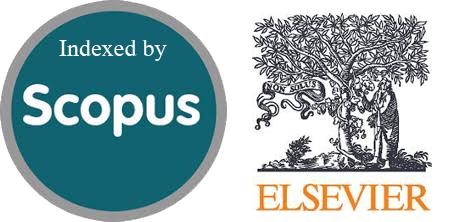Assessment of Elderly Perceptions toward Frailty at Geriatric Home Resident in Baghdad, Iraq
DOI:
https://doi.org/10.54133/ajms.v8i2(Special).1416Keywords:
Assessment, Elderly, Frailty, Geriatric, PerceptionsAbstract
Background: Frailty is a multifaceted phenomenon characterized by a decline in physical, psychological, and social capacities, which are commonly observed in the elderly and have negative implications for overall well-being. Clinical manifestation of phenotype refers to a specific clinical condition characterized by reduced physiological reserves and heightened susceptibility to stresses. Objective: To assess perceptions of frailty among the elderly, quantify the extent of these perceptions, and examine the relationship between these perceptions and socio-demographic information. Methods: A descriptive study was carried out at Geriatric Home Resident in Baghdad City. Including 100 elderly people who chose from AL-Rashad and Al-Sulaikh Geriatric Home Resident, the questionnaire contains sociodemographic information and perceptions towards frailty. Results: 69% of the elderly were 65-70 years old, 67% were male, 38% had a secondary educational level, there was a fair level of perceptions toward frailty (60%), and there was a high significant relationship between elderly perceptions toward frailty and age, gender, lifestyle, and regular exercise. Conclusions: The study reveals the elderly hold equitable opinions of the concept of "frailty" and possess distinct interpretations of the term compared to the definition commonly employed in medical literature. Elderly people who possess a state of physical vulnerability are inclined to engage in conversations regarding frailty as a medical condition with their healthcare providers, albeit with a preference for avoiding explicit terminology associated with frailty.
Downloads
References
Faller JW, Pereira DD, de Souza S, Nampo FK, Orlandi FD, Matumoto S. Instruments for the detection of frailty syndrome in older adults: a systematic review. PloS One. 2019;14(4): e0216166. doi: 10.1371/journal.pone.0216166. DOI: https://doi.org/10.1371/journal.pone.0216166
Furman D, Campisi J, Verdin E, Carrera-Bastos P, Targ S, Franceschi C, et al. Chronic inflammation in the etiology of disease across the life span. Nature Med. 2019;25(12):1822-1832. doi: 10.1038/s41591-019-0675-0. DOI: https://doi.org/10.1038/s41591-019-0675-0
Fried LP, Cohen AA, Xue QL, Walston J, Bandeen-Roche K, Varadhan R. The physical frailty syndrome as a transition from homeostatic symphony to cacophony. Nature Aging. 2021;1(1):36-46. doi: 10.1038/s43587-020-00017-z. DOI: https://doi.org/10.1038/s43587-020-00017-z
Siriwardhana DD, Hardoon S, Rait G, Weerasinghe MC, Walters KR. Prevalence of frailty and prefrailty among community-dwelling older adults in low-income and middle-income countries: a systematic review and meta-analysis. BMJ Open. 2018;8(3):e018195. doi: 10.1136/bmjopen-2017-018195. DOI: https://doi.org/10.1136/bmjopen-2017-018195
Bandeen-Roche K, Gross AL, Varadhan R, Buta B, Carlson MC, Huisingh-Scheetz M, et al. Principles and issues for physical frailty measurement and its clinical application. J Gerontol Series A. 2020;75(6):1107-1112. doi: 10.1093/gerona/glz158. DOI: https://doi.org/10.1093/gerona/glz158
Parish A, Kim J, Lewallen KM, Miller S, Myers J, Panepinto R, et al. Knowledge and perceptions about aging and frailty: An integrative review of the literature. Geriatr Nurs. 2019;40(1):13-24. doi: 10.1016/j.gerinurse.2018.05.007. DOI: https://doi.org/10.1016/j.gerinurse.2018.05.007
Krejcie RV. Determining sample size for research activities. Educational Psychol Meas. 1970. doi.org/10.1177/001316447003000308 DOI: https://doi.org/10.1177/001316447003000308
Archibald MM, Lawless M, Gill TK, Chehade MJ. Orthopaedic surgeons’ perceptions of frailty and frailty screening. BMC Geriatr. 2020;20:1-1. doi: 10.1186/s12877-019-1404-8. DOI: https://doi.org/10.1186/s12877-019-1404-8
Moffatt H, Moorhouse P, Mallery L, Landry D, Tennankore K. Using the frailty assessment for care planning tool (FACT) to screen elderly chronic kidney disease patients for frailty: the nurse experience. Clin Intervent Aging. 2018:843-852. doi: 10.2147/CIA.S150673. DOI: https://doi.org/10.2147/CIA.S150673
Heger I, Deckers K, van Boxtel M, de Vugt M, Hajema K, Verhey F, et al. Dementia awareness and risk perception in middle-aged and older individuals: baseline results of the MijnBreincoach survey on the association between lifestyle and brain health. BMC Public Health. 2019;19:1-9. doi: 10.1186/s12889-019-7010-z. DOI: https://doi.org/10.1186/s12889-019-7010-z
Castro-Herrera VM, Lown M, Fisk HL, Owen-Jones E, Lau M, Lowe R, et al. Relationships between age, frailty, length of care home residence and biomarkers of immunity and inflammation in older care home residents in the United Kingdom. Front Aging. 2021;2:599084. doi: 10.3389/fragi.2021.599084. DOI: https://doi.org/10.3389/fragi.2021.599084
Ganta N, Sikandar S, Ruiz SJ, Nasr LA, Mohammed YN, Aparicio-Ugarriza R, et al. Incidence of frailty in community-dwelling United States older veterans. J Am Med Direct Assoc. 2021;22(3):564-569. doi: 10.1016/j.jamda.2020.10.019. DOI: https://doi.org/10.1016/j.jamda.2020.10.019
Gordon EH, Hubbard RE. Differences in frailty in older men and women. Med J Australia. 2020;212(4). doi: 10.5694/mja2.50466. DOI: https://doi.org/10.5694/mja2.50466
Fan Y, Huang J, Zhou Y, Gu X, Gong D. Does the impact of frailty on all-cause mortality in older persons differ between women and men? A meta-analysis. J Am Med Direct Assoc. 2021;22(3):606-e1. doi: 10.1016/j.jamda.2020.05.059. DOI: https://doi.org/10.1016/j.jamda.2020.05.059
van Assen MA, Helmink JH, Gobbens RJ. Associations between lifestyle factors and multidimensional frailty: a cross-sectional study among community-dwelling older people. BMC Geriatr. 2022;22:1-3. doi: 10.1186/s12877-021-02704-x. DOI: https://doi.org/10.1186/s12877-021-02704-x
Delbari A, Zanjari N, Momtaz YA, Rahim F, Saeidimehr S. Prevalence of frailty and associated socio-demographic factors among community-dwelling older people in southwestern Iran: a cross-sectional study. J Diabet Metab Disord. 2021;20:601-610. doi: 10.1007/s40200-021-00787-2. DOI: https://doi.org/10.1007/s40200-021-00787-2

Downloads
Published
How to Cite
Issue
Section
License
Copyright (c) 2025 Al-Rafidain Journal of Medical Sciences ( ISSN 2789-3219 )

This work is licensed under a Creative Commons Attribution-NonCommercial-ShareAlike 4.0 International License.
Published by Al-Rafidain University College. This is an open access journal issued under the CC BY-NC-SA 4.0 license (https://creativecommons.org/licenses/by-nc-sa/4.0/).











